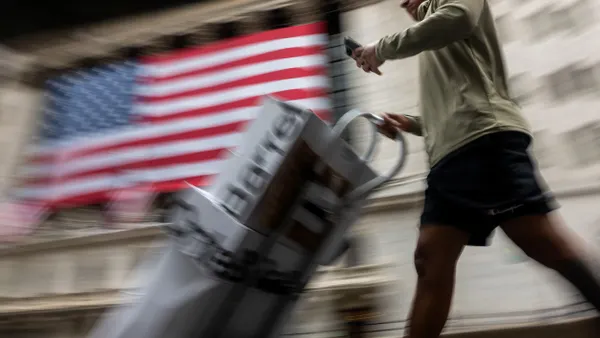Dive Brief:
- Detroit didn't make Amazon's list of 20 potential locations for the company's future second headquarters — to the surprise of many, the Detroit Free Press reports. The Motor City is said to be making a comeback from its once depressed metropolis state following a decline in the auto industry.
- In a phone conversation with Sandy Baruah, the Detroit Regional Chamber's president and CEO, Amazon officials said an insufficient talent pool eliminated Detroit from the competition. It's also suspected that the lack of a vibrant transit system, technology sector and stable business climate may have worked against the city, says the Free Press.
- Detroit reportedly had other attributes that were important to Amazon, including a large population, renowned international airport and highly rated universities. Other cities dropped from the bidding were Phoenix, San Diego and Minneapolis, according to the Free Press. Newark, NJ, and Atlanta are among the 20 cities under consideration.
Dive Insight:
Retail analyst Nick Egelanian, SiteWorks' president of retail development consultants International, told Retail Dive that not all 20 cities on Amazon's list have the criteria the company says it wants. In an email to Retail Dive, Jim Fosina, CEO of Fosina Marketing Group, said he thinks a location outside of one of the big cities could be Amazon's final choice, allowing them the flexibility they need.
The hoopla around HQ2 reflects the growing interconnectedness between employers and the cities they may work in. Employers that may be looking to relocate or open a new facility must consider how much infrastructure they require, and how much they are willing to invest. Such investment can occur through formal corporate social responsibility (CSR) initiatives, partnering with local governments to meet the area's economic needs, promoting employee volunteerism in community activities and supporting the arts and culture in the region.
Wherever Amazon's HQ2 ends up may be a potentially strong area for other employers to consider for offices, too. A major retailer can be the catalyst for revitalization in any area.











